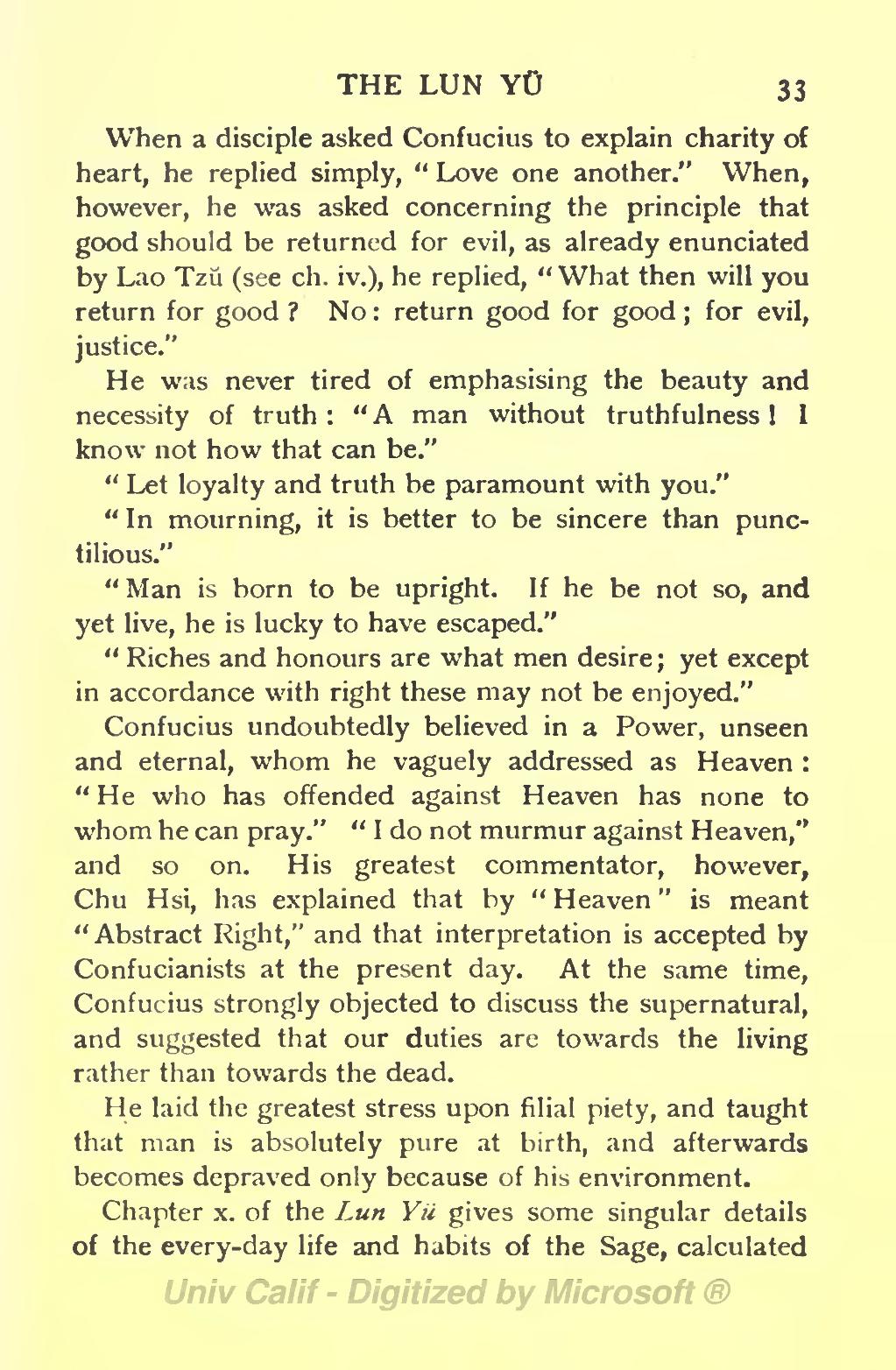When a disciple asked Confucius to explain charity of heart, he replied simply, "Love one another." When, however, he was asked concerning the principle that good should be returned for evil, as already enunciated by Lao Tzu (see ch. iv.), he replied, "What then will you return for good? No: return good for good; for evil, justice."
He was never tired of emphasising the beauty and know not how that can be."
"Let loyalty and truth be paramount with you."
"In mourning, it is better to be sincere than punctilious."
"Man is born to be upright. If he be not so, and yet live, he is lucky to have escaped."
"Riches and honours are what men desire; yet except in accordance with right these may not be enjoyed."
Confucius undoubtedly believed in a Power, unseen and eternal, whom he vaguely addressed as Heaven: "He who has offended against Heaven has none to whom he can pray." "I do not murmur against Heaven," and so on. His greatest commentator, however, Chu Hsi, has explained that by "Heaven" is meant "Abstract Right," and that interpretation is accepted by Confucianists at the present day. At the same time, Confucius strongly objected to discuss the supernatural, and suggested that our duties are towards the living rather than towards the dead.
He laid the greatest stress upon filial piety, and taught that man is absolutely pure at birth, and afterwards becomes depraved only because of his environment.
Chapter x. of the Lun Yü gives some singular details of the every-day life and habits of the Sage, calculated

